Friendly Persuasion (1956)
“A man’s life ain’t worth a hill of beans except he lives up to his own conscience.”
|
Synopsis: |
|
Genres, Themes, Actors, and Directors:
Review: Indeed, the presence of fighting nearby causes an enormous internal conflict for Perkins, who hates the very idea of harming his fellow men, yet knows that to stay away from the conflict entirely is (for him) equally detestable. To that end, Wyler and black-listed screenwriter Michael Wilson (whose Oscar nomination was rescinded, then later restored) do a remarkable job infusing the narrative with strong hints of how challenging it can be to maintain a pacifist attitude during wartime; numerous powerfully-written scenes highlight the ways in which various characters struggle against either the urge, or the perceived need, to harm someone else — such as when Perkins’ tussle-happy friend (John Smith) agrees to participate in a wrestling match at the local fair, then stops as he realizes (in horror) that he’s actually hurting his opponent. Later, in a series of provocative but sensitively handled scenes, not only Perkins but Cooper and McGuire each find themselves squarely confronting the need or desire to act against their pacifist ideals. The performances throughout the film are simply wonderful. Cooper and McGuire’s marriage is presented as firmly grounded in mutual respect and love; the scene in which they butt heads over whether Cooper will be allowed to bring the organ he’s bought into the house shows their ability to eventually resolve marital conflict through loving compromise. Love (who, on a personal note, I knew later in her life, when she went by a different name completely) is simply charming in one of her few film roles, and Eyer demonstrates once again why he was one of the most natural and appealing kid-actors around. Meanwhile, Perkins appropriately won rave reviews (and an Oscar nomination) for his sensitive portrayal as Josh Birdwell, whose internal conflict over whether or not to take up a gun never hits a false note. Note: There’s an odd little interlude in which Cooper and Perkins travel the countryside selling their wares, and stay the night with a widow (Marjorie Main) and her three man-hungry daughters (Edna Skinner, Marjorie Durant, and Frances Farwell); the broad humor of this scene feels a touch out of place, but is so enjoyable that one doesn’t really mind. Redeeming Qualities and Moments:
Must See? Categories
Links: |
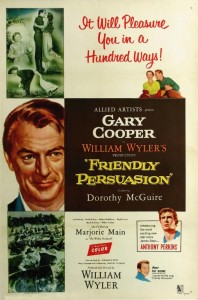
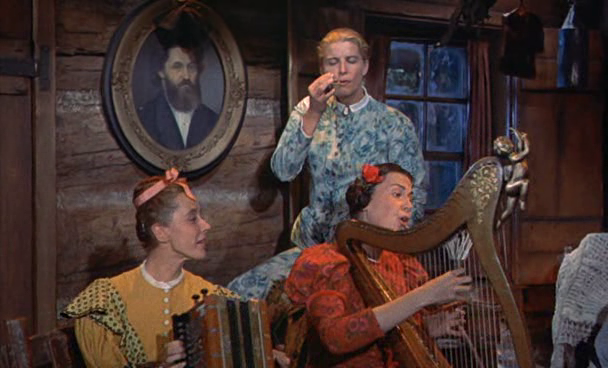
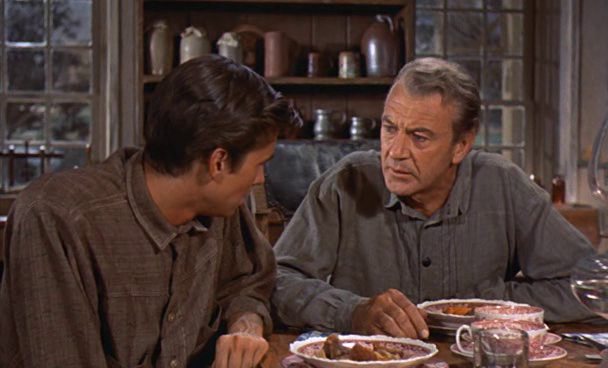
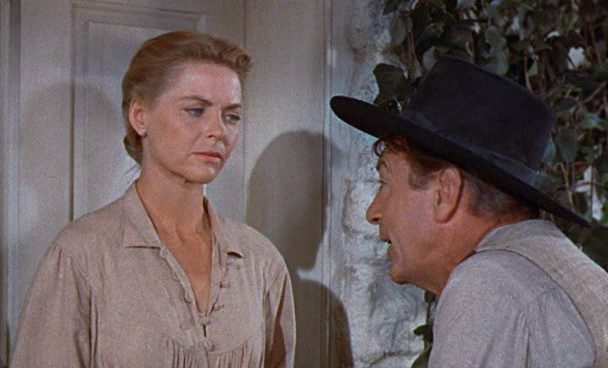
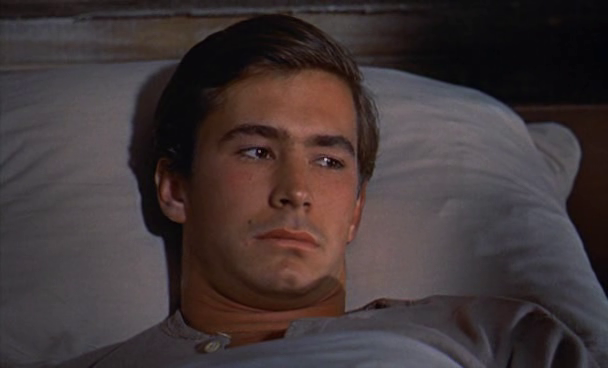


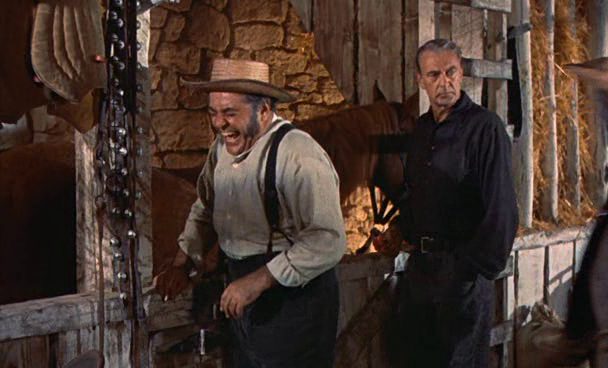

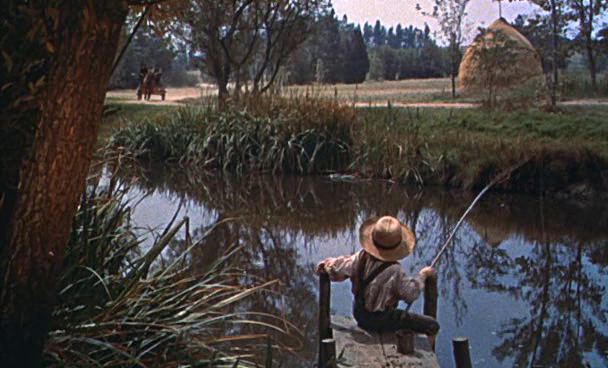
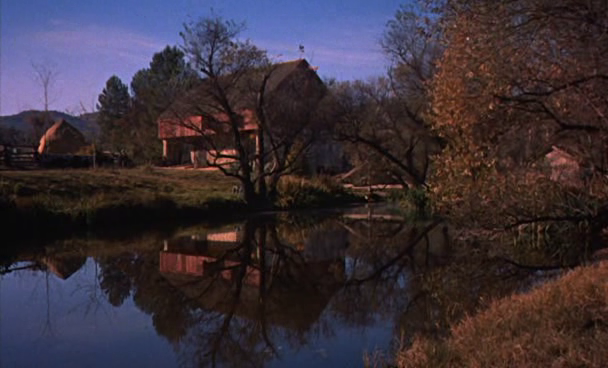
One thought on “Friendly Persuasion (1956)”
A once-must, for the story and the performances.
I’d not seen this in many years, til now. Growing up, this is a flick that my sister Jane had particular fondness for – and, chances are, I was probably plopped there beside her – or nearby – whenever it was shown on television (~because, of course, in those days, if it wasn’t at your local theatre, you generally waited for it to be shown on tv, if you weren’t urban). I think Jane related to both the mother and the daughter in this film. That’s the feeling I had throughout quite a few viewings with her.
If it’s not exactly a great movie in the classic sense, it’s still a rather heartwarming tale – one that will most likely get under your skin as it progresses. Of course, some of it is ordinary in its capture of daily Quaker life. But the idea of pacifism (which covers a good deal of ground here) remains compelling today.
Surprisingly, McGuire is not called on to be much more than one-note; a lot more color is given to Cooper’s character – and the result is one of his more unique performances. Eyre is simply terrific whenever he’s on-screen. (I love his narration which opens the film. Hearing it again, a wave of nostalgia swept over me – remembering viewing the film with Jane, no doubt.) The rest in the cast are fine under Wyler’s understated direction.
Fave scene has to be the sequence with Main and her daughters (which I don’t consider having a tone that goes against the rest of the film). Like the county fair sequence, it’s a chance for the film to let fly a little, and it’s welcome (and rather hilarious).
I do think I’ve now seen the complete film for the first time. By that I mean I’m pretty sure that all those tv screenings were of cut versions – not cut to a damaging degree, really, but with this revisit, I noticed little scenes here and there that I’d not seen before.